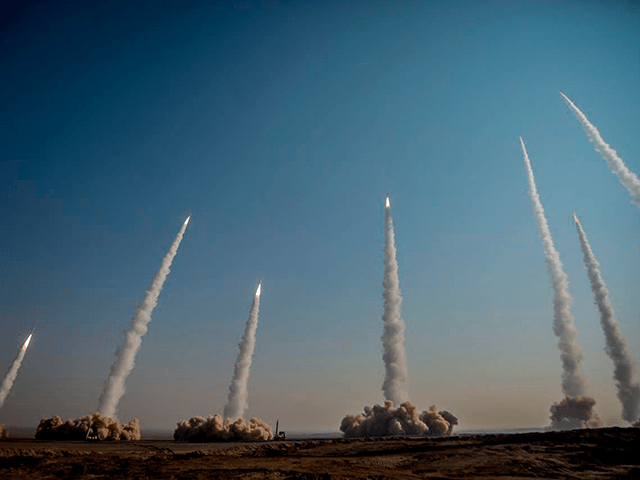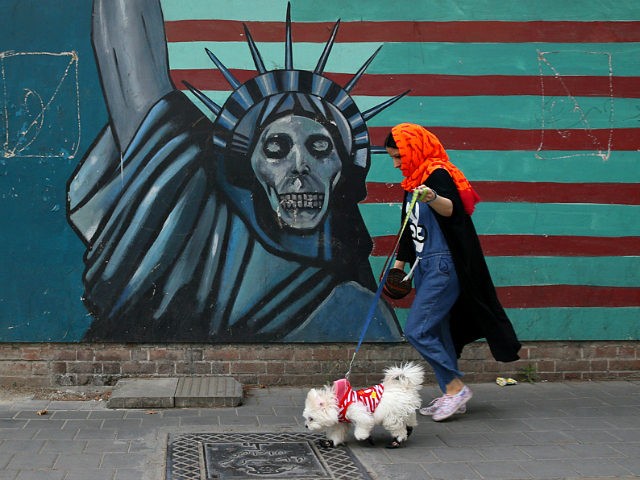The threat of war is the only chance of pressuring Iran into a diplomatic process, former Middle East peacemaker under the Clinton and Obama administrations, Dennis Ross, wrote in an oped in Foreign Policy magazine.
According to Ross, Tehran no longer takes Washington seriously under President Joe Biden and the only way to remedy that is to threaten military action.
“Unless the Iranians understand that the pathway they are on is dangerous for them, the probability of the use of force will go up,” writes Ross.
“If the United States wants to reduce the risk of a conflict and give diplomacy a chance to succeed, the Biden administration is going to have to restore Iran’s fear of a U.S. reaction and apply pressure far more effectively,” he asserts.

In this photo released on Friday, Jan. 15, 2021, missiles are launched in a drill in Iran amid heightened tensions over Tehran’s nuclear program and a U.S. pressure campaign against the Islamic Republic. (Iranian Revolutionary Guard/Sepahnews via AP)
According to Ross, the Iranians took bold steps, including enriching uranium to 60% — near weapons-grade level and blocking the UN’s nuclear watchdog from accessing sites — because it knew that doing so would evoke no reaction on the part of the U.S. or the other P5+1 members of the Obama-led JCPOA.
“And they were right—there was no consequence,” Ross writes.
He continues by outlining two possible scenarios that explain the rationale behind Iran’s aggressive actions towards obtaining the bomb.
Are the Iranians pressing ahead now with near weapons-grade enrichment, uranium metal, and cascades of advanced centrifuges to pressure Washington into improving the terms of the nuclear deal, where they get more sanctions relief than they are entitled in exchange for fewer constraints on their nuclear infrastructure? Or are they doing so because they want to achieve a Japan-like threshold capability that would enable them to move very quickly to a nuclear weapon if they chose to do so? Or both, since these are not mutually exclusive options?
The latter option, says Ross, in which Iran would achieve Japan-like threshold weapons capability, would give it “the ability to present the world with a nuclear fait accompli at a time of its choosing,” and is a scenario that Israel would never accept and would compel the Israelis to “militarily attack Iran’s whole nuclear infrastructure.”
In an interview with CNN on Sunday, Secretary of State Antony Blinken again reiterated that the U.S. was willing to look at “all of the options necessary” if diplomacy failed.
“We do not yet know if Iran is willing to come back, and to engage in a meaningful way and get back into compliance,” Blinken said. “If it isn’t, if it won’t, then we are looking together at all of the options necessary to deal with this problem.”

COMMENTS
Please let us know if you're having issues with commenting.